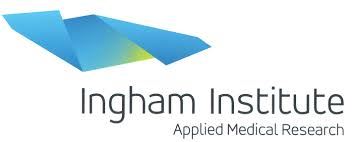A new NSW Brain Clot Bank initiative led by Dr Sonu Bhaskar and Professor Murray Killingsworth has just received four-years funding from the NSW Ministry of Health.
This grant will enable the establishment of an NSW collection for thrombectomy samples to be housed at the NSW State-wide Biobank Facility. The underlying cause of stroke in individual patients may soon be unravelled thanks to this new research initiative from the Ingham Institute for Applied Medical Research and Liverpool Hospital.
This is a world-first initiative that will establish an important resource for fast-tracking stroke research. The group have committed to providing brain clot data on an “open source” collaborative basis that will be available for use by stroke research groups worldwide.
A new procedure called endovascular thrombectomy (EVT) means that stroke-causing blood clots can now be safely removed from the brain of stroke patients for analysis by pathology. Analysis at the single cell and molecular level will be used to identify the source of the clot blockage, advise stroke survivors of their ongoing risk factors and allow precision targeted therapy to prevent disease recurrence. Previously, only low-resolution clinical imaging of the blockage site was available to clinicians for prognostic evaluation.
“Thanks to the ‘game-changing” treatment for patients who have suffered an ischemic stroke – we now have a unique window of opportunity to examine the brain clots, retrieved after the surgical procedure, to study the underlying causes of stroke. This offers hope to find new ways to correctly diagnose and treat stroke”, said Dr Sonu Bhaskar, Chief Investigator of NSW Brain Clot Bank.
Associate Professor Murray Killingsworth who Heads the Correlative Microscopy Facility at Ingham Institute for Applied Medical Research and is a co-Chief Investigator of the project adds, “I’m excited about this initiative which will allow us to study the composition of brain clots using cutting-edge advanced microscopy and pathology techniques.”
Prof Les Bokey, Director of Research at Ingham Institute and South West Sydney Local Health District (SWSLHD), said, “Bringing together leading team of vascular neurologists, neuro-interventionists and pathologists from major tertiary care hospitals in NSW, this biospecimen bank led by Dr Bhaskar and Prof Killingsworth would allow improved diagnostic support systems in stroke. SWSLHD and Ingham Institute are proud to support the translational stroke research program designed to drive cutting-edge innovations in stroke.”
The Chief Executive Officer of Ingham Institute, Darryl Harkness, said, “The grant from the Ministry of Health will provide a valuable opportunity to clinicians and/or researchers who can use this new knowledge to prevent stroke and identify causes. This may lead to further significant improvements in the way we treat acute stroke.”
“I am very encouraged by the multi-site collaborative network across major NSW hospitals. This will put NSW on the international map as a leading player in this field of research.”, said A/Prof Greg Kaplan, Chief Operating Officer at Ingham Institute for Applied Medical Research.
